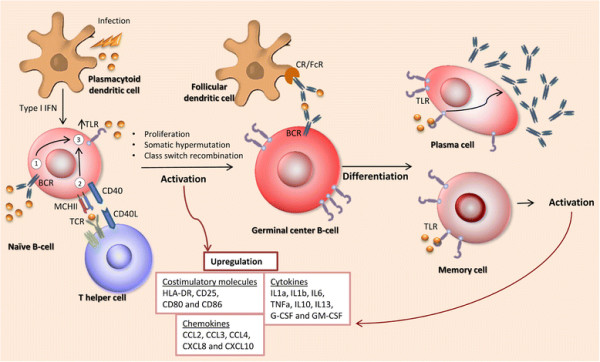Figure 2.

The role of TLRs in B-cell activation and differentiation. TLR ligation constitutes one of the three activation signals of naïve-B cells next to BCR triggering and T-cell interaction through CD40. The latter two signals upregulate the expression of TLRs, which subsequently interact with their respective ligands to activate naïve B-cells completely. Activation through TLRs enhances expression of membrane molecules and the production of cytokines and chemokines. It also induces proliferation, somatic hypermutation and class switch recombination. After their first encounter with the ligand and consequent maturation, germinal center cells can further transform into antibody-secreting plasma cells or memory B cells. TLR signaling has been proven to increase antibody secretion and participates in the maintenance of serological memory.
